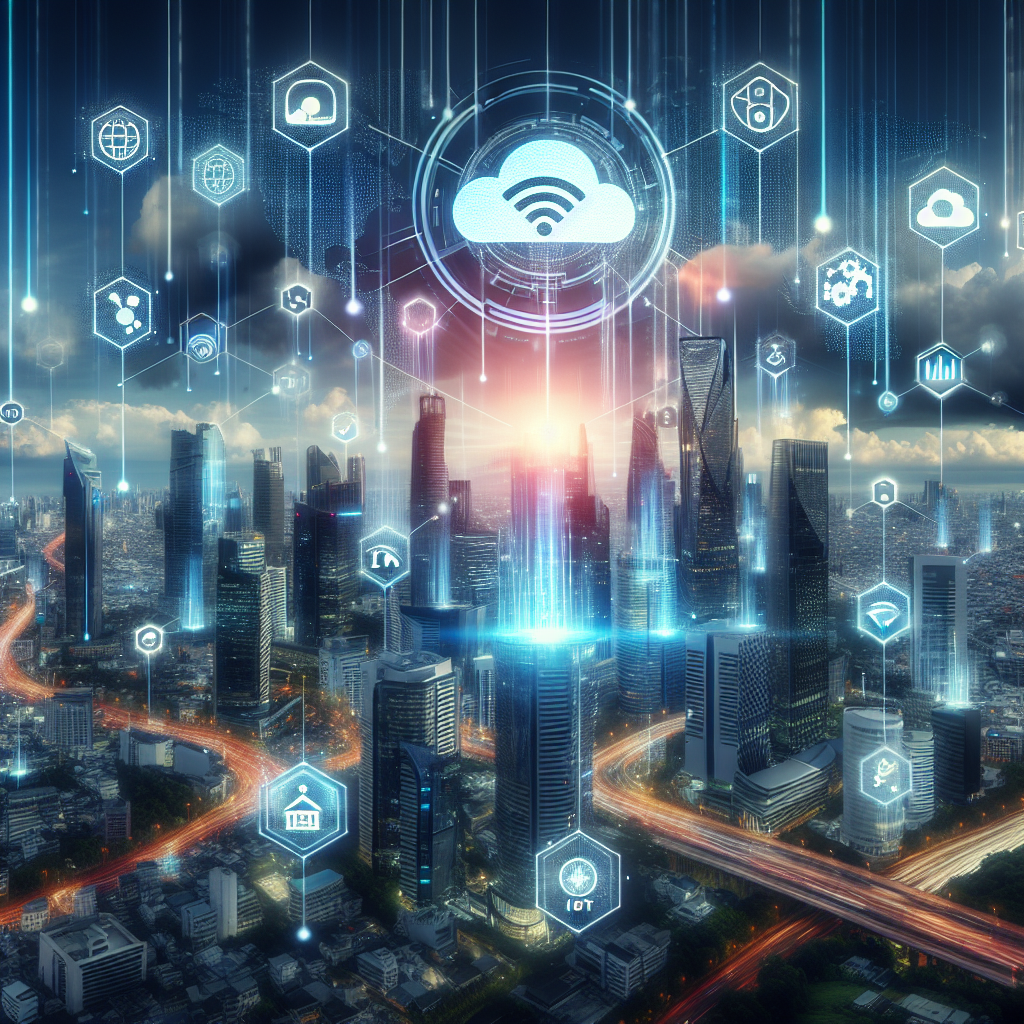[ad_1]
The Internet of Things (IoT) is more than just a buzzword; it is a transformative technology reshaping industries at breakneck speed. This article examines how IoT is set to revolutionize various sectors, the advantages it offers, and the challenges it presents in the next decade.
Introduction to IoT
IoT refers to a network of interconnected devices that communicate and exchange data with each other. From smart home devices to industrial sensors, IoT applications are expanding remarkably. According to a recent report by Statista, the number of connected IoT devices is expected to reach 30.9 billion by 2025.
“The Internet of Things is transforming our world, allowing devices and systems to work together seamlessly.” – Industry Expert
Industries Transformed by IoT
1. Manufacturing
IoT is revolutionizing the manufacturing sector through:
- Predictive maintenance
- Supply chain optimization
- Real-time production monitoring
By integrating IoT sensors, manufacturers can minimize downtime and reduce operational costs. For instance, GE reports a 10% reduction in maintenance costs through predictive analytics.
2. Healthcare
In healthcare, IoT devices are enhancing patient care via:
- Remote monitoring
- Telemedicine
- Smart medical devices
According to a study by the International Data Corporation (IDC), healthcare IoT spending is expected to reach over $158 billion by 2022.
3. Agriculture
Precision agriculture is becoming a reality with IoT:
- Soil moisture sensors
- Weather monitoring devices
- Automated irrigation systems
This results in improved yields and sustainable farming practices.
4. Transportation
IoT is reshaping transportation with:
- Connected vehicles
- Fleet management systems
- Traffic monitoring solutions
An effective integration of IoT can reduce fuel consumption by up to 15%.
Data Insights and Analytics
With connectivity comes a flood of data. Businesses are leveraging this data for:
- Improved decision-making
- Enhanced customer experiences
- Operational efficiencies
Analytics tools powered by AI and machine learning are making sense of this data, driving actionable insights.
Challenges Ahead
While the potential of IoT is immense, several challenges must be addressed:
- Security Risks: Increased connectivity poses risks of cyber attacks.
- Data Privacy: Sensitive information must be protected.
- Interoperability: Different devices and platforms must be able to work together.
Looking Ahead
The future of IoT is bright, with trends indicating:
- Increased use of 5G technology
- Growth in edge computing
- Wider adoption of AI in IoT applications
Analysts predict that the IoT market will grow from $250 billion in 2020 to over $1.5 trillion by 2030.
| Year | No. of Devices (Billion) | Market Growth ($ Trillion) |
|---|---|---|
| 2020 | 8.74 | 0.25 |
| 2025 | 30.9 | 0.5 |
| 2030 | 50 | 1.5 |
Conclusion
The Internet of Things holds the potential to revolutionize industries by enhancing efficiency, productivity, and sustainability. While there are challenges to navigate, the benefits far outweigh the risks as we move into a more connected future. With continuous advancements in technology, IoT is set to bring unprecedented change in the next decade.
FAQs
1. What is IoT?
The Internet of Things (IoT) is a system of interrelated physical devices that can exchange data over the internet.
2. How does IoT benefit businesses?
IoT can enhance operational efficiencies, improve customer experiences, and enable data-driven decision-making.
3. What are the security concerns associated with IoT?
IoT devices can be vulnerable to cyber threats, making it essential for businesses to implement robust security measures.
4. What industries are using IoT?
Industries including manufacturing, healthcare, agriculture, and transportation are leveraging IoT technologies.
5. What is the future outlook for IoT?
The IoT market is projected to grow significantly, driven by advancements in technology and increased connectivity.
[ad_2]
